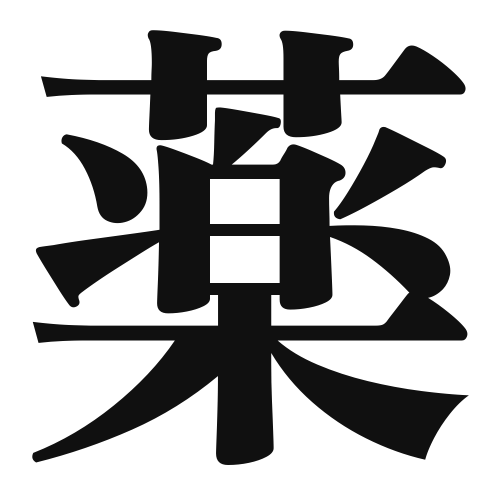1. Overview of Meaning
The kanji “薬” (yaku) means “medicine” or “drugs.” It refers to substances used to treat illnesses or alleviate symptoms. In a broader sense, it can also imply anything that has a healing or beneficial effect.
2. Formation and Radicals
The kanji “薬” is a compound character (会意文字) that combines elements to convey its meaning. It consists of the radical “薬” (which itself means “medicine”) and the phonetic component “各” (kaku), which contributes to its pronunciation.
The radical for “薬” is “薬” (yaku), which is associated with medicine and healing.
3. Examples of Usage
Common words and phrases that include “薬” are:
- 薬局 (やっきょく, yakkyoku) – pharmacy
- 薬剤師 (やくざいし, yakuzaishi) – pharmacist
- 漢方薬 (かんぽうやく, kanpouyaku) – traditional Chinese medicine
Example sentences in daily conversation:
- 「この薬はよく効きます。」 (This medicine works well.)
- 「薬局に行って、風邪の薬を買ってきます。」 (I will go to the pharmacy to buy cold medicine.)
4. Synonyms and Antonyms
Similar kanji with related meanings include:
- 治療 (ちりょう, chiryou) – treatment (focuses on the process of healing)
- 療法 (りょうほう, ryouhou) – therapy (refers to methods of treatment)
Antonyms include:
- 毒 (どく, doku) – poison (substances that are harmful or lethal)
5. Cultural and Historical Background
The kanji “薬” is deeply rooted in Japanese culture, where traditional medicine has been practiced for centuries. It is often associated with healing practices and herbal remedies.
Proverbs and idiomatic expressions related to “薬” include:
- 「薬は口に苦し」 (Medicine is bitter in the mouth) – This means that sometimes, what is good for you may not be pleasant.
